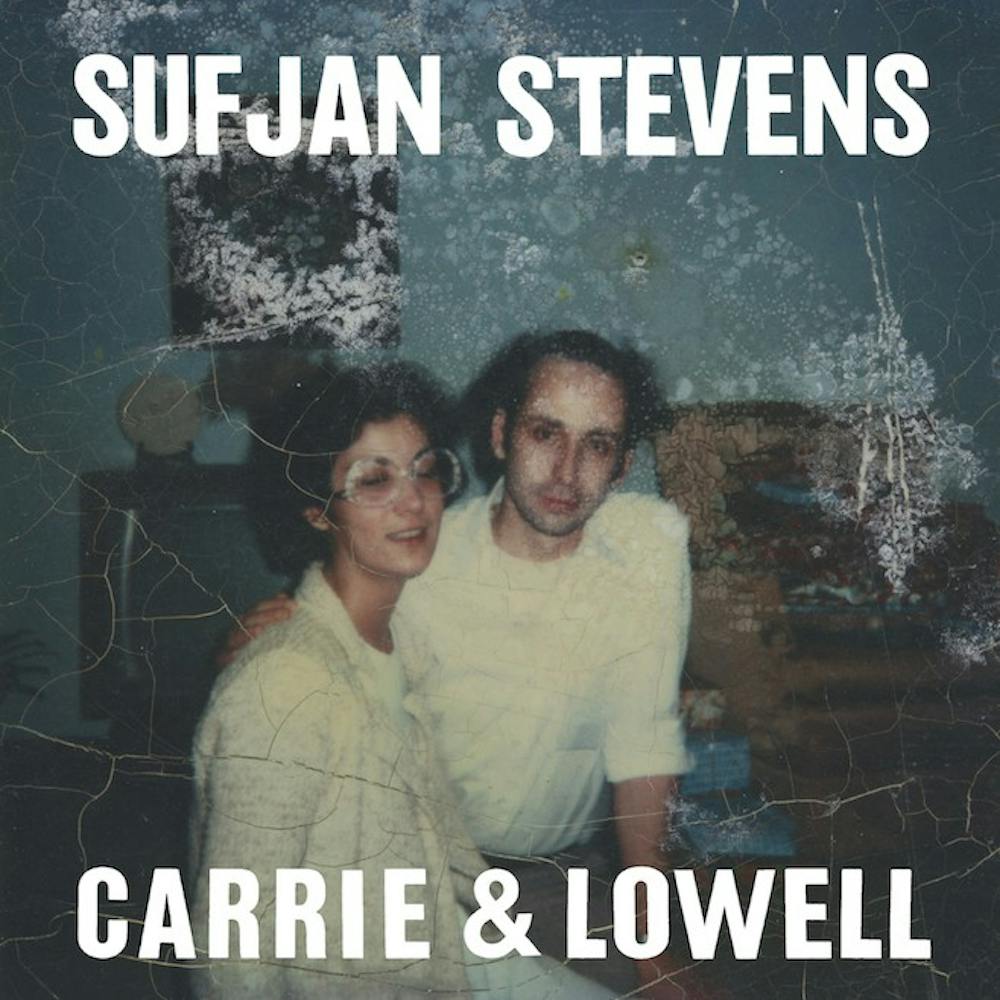Over the course of his fifteen-year career, Sufjan Stevens has written folk music, electronic music, two film soundtracks, a ballet score and two albums dedicated to U.S. states.
While it’s always exciting to see what he chooses to explore next, fans have most likely been imagining would happen if he returned to the intimate, straightforward style of his early career, now with the maturity and perspective of middle age.
With his new album, “Carrie & Lowell,” he's finally done it. Prompted by the death of his mother, Stevens has recorded his most accessible and personal album yet. “Carrie & Lowell” is an inversion of his usual approach. On past projects, Stevens tended to choose unusual subject matter, perhaps to challenge himself, such as the paintings of paranoid schizophrenic, self-proclaimed prophet Royal Robertson. Stevens would then flesh out his ideas by peppering the songs with details from his personal life with lines like “And when you crochet I feel mesmerized and proud."
On “Carrie & Lowell,” however, he addresses his own life head-on — in fact, the album is named after his mother and stepfather. The lyrics string together images that don’t always make perfect sense, but feel more personal than a conversation ever could.
In “Death with Dignity,” rapid and percussive guitar picking provides a warm, hopeful momentum, setting the stage for an album that lacks any real drums but never lacks energy. “I forgive you, mother, I can hear you, and I long to be near you / But every road leads to an end,” Stevens sings, confirming that this is an album of reflection and acceptance.
The songs feel therapeutic and necessary for Stevens, who told Pitchfork that his mother’s recent death “nearly destroyed me, because I still couldn't make sense out of it.” This comes through in songs like “All Of Me Wants All Of You,” where he asks, “Shall we beat this or celebrate it?”
The most successful songs on the album are the most honest, which can sometimes mean the simplest. “Carrie and Lowell / Such a long time ago,” begins the title track, and it rings emotionally true.
Any moments of humor on the album are self-deprecating, such as in “No Shade In The Shadow Of The Cross,” when he sings, “Like a champion / get drunk to get laid.” Stevens doesn’t take himself too seriously, even when singing about his existential crises.
Of course, he makes several references to cosmic, mythological figures while discussing his personal life. It wouldn’t be a Stevens album otherwise. “Erebus on my back / my lucky charm,” he sings in “Carrie & Lowell,” referring to the ancient Greek personification of darkness.
There’s a problem that philosophers talk about called the “problem of other minds.” It’s the idea that nobody can ever really know whether other people are actually having experiences, or whether everybody else is just an automaton, appearing to have consciousness but actually lacking it. The biggest achievement of “Carrie & Lowell” is that it feels like proof that somebody else is out there, experiencing beauty and anxiety and taking comfort in sharing it. For that reason, “Carrie & Lowell” is best experienced alone.
On one hand, it would be unfortunate if this were Stevens’ last album. But it would certainly be a graceful exit, similar to The Beatles ending their collective career by recording “The End.” In either case, fans can relax with the knowledge that Stevens has finally returned to explore his potential as a traditional songwriter.

